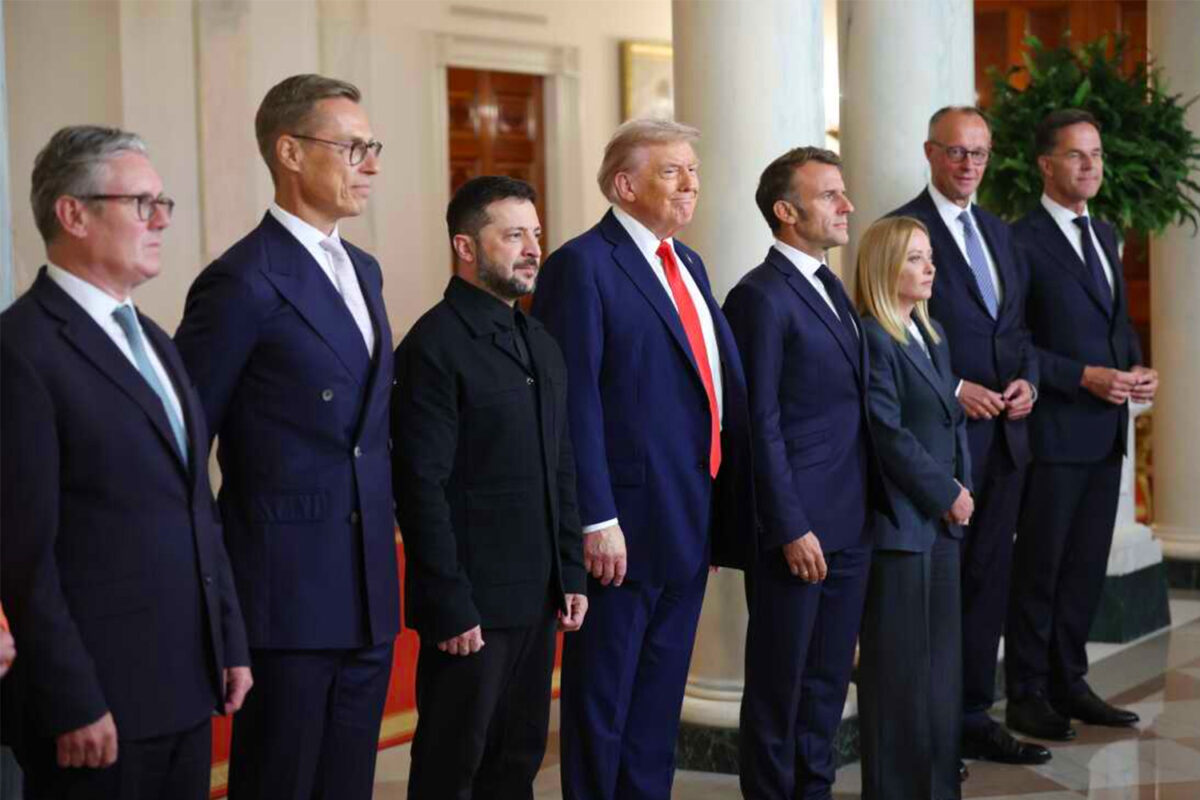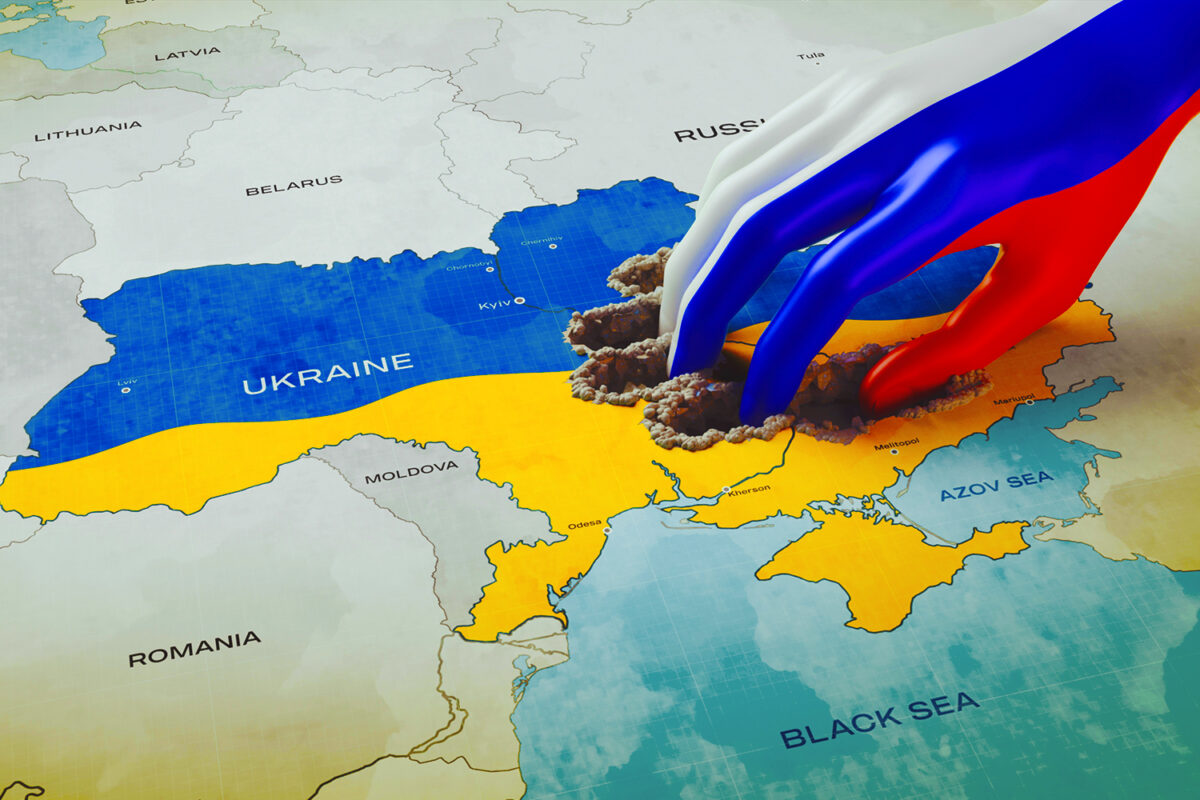This article is adapted from a forthcoming geopolity booklet – ‘the Geopolitics of France.’ The booklet is part of a series of 6 booklets looking at the geopolitics of the world’s powers – the US, Russia, China, Britain, France and Germany. The series will be published in 2024.
The release of Ridley Scott’s epic on Napoleon Bonaparte the 19th century French emperor has brought fresh interest to the period where France was leading revolutionary change on the European continent. Napoleon brushed aside other European powers and left his mark on history. The French emperor is credited with spreading the values of the French Revolution to other countries, especially through the Napoleonic Code. Like many leaders in history Napoleon is still studied over 200 years after his demise and the debate over whether he was an enlightened despot who laid the foundations of modern Europe or a megalomaniac who wrought misery will likely continue.
Napoleon’s rise cannot be understood without understanding what the context was in France and the European continent on the eve of the French revolution in 1787. France, like much of Europe, was dominated by monarchy and the feudal system from mediaeval times. Since the fall of the Roman empire in the 5th century France was ruled over by successive dynasties who gave privileges to a faction of society in the form of land ownership. This created France’s aristocracy that supported the monarchy and served as a key pillar of royal authority. France had successive monarchs who believed they were appointed by the grace of God. The nobility held a privileged status and enjoyed substantial political, legal, and social privileges. The aristocracy along with the clergy owned vast estates and held positions of power and authority. They were exempt from many taxes and lived in luxury.
Most French people since mediaeval times lived as peasants and formed over 80% of the population throughout much of French history. French peasants lived in rural areas and worked as agricultural labourers. Peasants typically lived in small, overcrowded cottages and endured difficult living conditions. They were subject to feudal dues, tithes to the Church, and other obligations that significantly affected their livelihoods. The context prior to the French revolution was one of social inequality and virtually no chance for social mobility. The wealth and privileges of the nobility and clergy contrasted sharply with the hardships faced by most of the French population. As the 18th century was nearing its end the status quo was struggling for survival.
France, like much of Europe, was dominated by monarchy and the feudal system from mediaeval times
Vive la France
By 1789, the French monarchy under the inept King Louis XVI was bankrupt due to numerous wars and the monarch’s lavish spending. In an effort to raise money to reduce the national debt the King summoned the ancient parliament and eventually the Estates-General, which represented the clergy, the aristocracy, and the Third Estate (the commoners). The King proposed increasing tax on the privileged classes, who refused to take responsibility for the King’s excesses. The Third estate wanted far reaching reforms, which the King refused leading to the Third Estate to declare themselves the National Assembly that represented all of France. Revolution had arrived in France.
The overthrow of the French monarchy and order that had lasted centuries was particularly violent. The national assembly attacked the symbol of Royal power, the Bastille which was a prison used by French monarchs to imprison their enemies. The storming of the Bastille on the 14th of July 1789, is now the French national day. The annual celebration is considered the oldest and largest military parade in Europe. The Assembly adopted the Declaration of the Rights of Man and of the Citizen (Déclaration des droits de l’homme et du citoyen), a statement of democratic principles based on the philosophical and political ideas of Enlightenment thinkers. The document proclaimed the Assembly’s commitment to replace the monarchical system with a system based on equal opportunity, freedom of speech, popular sovereignty and representative government. But drafting a formal constitution proved much more of a challenge. On the 3rd of September 1791, France’s first written constitution echoed more moderate voices in the Assembly, establishing a constitutional monarchy in which the King enjoyed royal veto power and the ability to appoint ministers. This compromise did not sit well with more radical voices.
The radicals in the assembly who believed the revolution didn’t go far enough carried out a wave of violence massacring hundreds of accused counterrevolutionaries. They then attacked the royal residence in Paris and arrested the King. The King was sent to the guillotine for high treason. His wife Marie Antoinette suffered the same fate too. The National Assembly was replaced by the National Convention, which proclaimed the abolition of the monarchy and the establishment of the French Republic.
As the 19th century began France faced two major challenges. The French Revolution rather than bringing stability saw a huge increase in brutal violence as radicals unleashed a bloody Reign of Terror against suspected enemies of the revolution who were guillotined by the thousands. The French Revolution also led to the monarchies of Europe seeing France as a major threat. If the king of France could lose his power so soon after the Americans had removed the British King’s power from the American colonies, what might that mean for the remainder of Europe if the idea of successful revolution should spread? Rather than wait for such a subversive ideology to reach other countries, Prussian King William II joined Emperor Leopold II of Austria to isolate France and attempt to restore the monarchy. Russia and Sweden promised to contribute troops with Spanish subsidies. Eventually England, Holland and Spain would join in against France.
The French Revolution led to the monarchies of Europe seeing France as a major threat. If the king of France could lose his power so soon after the Americans had removed the British King’s power from the American colonies, what might that mean for the remainder of Europe if the idea of successful revolution should spread?
The French revolution had descended into chaos as the architecture that emerged after the overthrow of the monarchy was beset by problems that ranged from corruption, unrest, a weak economy and ongoing conflicts between revolutionaries. On the 9th of November 1799, Napoleon Bonaparte staged a coup d’état and appointed himself France’s first consul and eventually emperor of France.
The Napoleonic Era
Napoleon declared he embodied the spirit of the French Revolution through his rule though he had no patience with those who demanded greater liberty. He crushed those who spoke out against him, making a sham of parliament and free elections. He oversaw the codification of a new system of laws – the Civil Code – which abolished the old feudal privileges and established the equality of every man before the law. Although he began handing out titles of nobility to his loyal friends and family as his empire expanded across continental Europe.
Within three years of coming to power, Napoleon completely reorganised France. He set in place a strong, centralised government with a tightly structured bureaucracy. He built new parks, bridges and quays as well as canals, reservoirs, and roads. He founded the Bank of France, which assured French businessmen credit. He signed an agreement with the Pope, making Catholicism the official religion of France. He had no personal use for religion, but he understood its political value. Napoleon signed the Treaty of Mortefontaine with the US and sold the Louisiana Territory to Thomas Jefferson’s government. In 1802 he convinced England to sign the Treaty of Amiens, temporarily ending their war.
Napoleon consolidated his reputation as he led France in a series of military victories across much of Europe. Napoleon’s conquest of Europe spread French revolutionary ideas throughout the European continent, while further destabilising the influence of the Holy Roman Empire, which would eventually collapse in 1806. This sowed the seeds for later revolts in 1830 and 1849 across Europe, loosening and ending the monarchical rule that would lead to the creation of Germany and Italy later in the century, as well as sow the seeds for the Franco-Prussian war and, later, World War.
Military General
Napoleon is most famous as a military general as he defeated the numerous military coalitions the European powers threw at him. In a number of astonishing campaigns, he would humble the Austrians, the Prussians, and the Russians. After each victory, the sphere of his influence and control spread throughout Europe. Napoleon created various realms from the territories he acquired to give to his brothers, sisters, and military as well as political associates to administer under his direction. However, he was unable to come to grips with his one major rival, Great Britain. The loss of his fleet, and that of his ally Spain, at the battle of Trafalgar 1805 forced Napoleon to devise a means to humble that “nation of shopkeepers.” Napoleon established the Continental System where all commerce between the Continent and Britain was to cease and all ports were to close to British shipping, thereby damaging the British economically, since he could not deal with them militarily.
Napoleon is most famous as a military general as he defeated the numerous military coalitions the European powers threw at him. In a number of astonishing campaigns, he would humble the Austrians, the Prussians, and the Russians
Napoleon’s contribution to military thinking was his reworking the French army into a corps system, which manoeuvred in an entirely new fashion. Marching with four corps in a loose diamond fashion, the battalion carré, each force could forage for itself and defend itself when attacked, holding an enemy in place until the other units came to its support. Two corps would flank the enemy, while the remaining one would act as a reserve. Thus, any enemy force finding itself with a superiority in numbers soon found itself flanked by the rapidly moving French response. Mobility and speed marked Napoleon’s actions, and his enemies usually found themselves defeated by their own tactics.
When the Russian withdrew from the Continental System, Napoleon in 1812 led an army of up to 600,000 soldiers into Russia to overthrow Czar Alexander I. But rather than engaging the huge French force in a full-scale battle, the Russians adopted a strategy of retreating into Russia’s interior. As a result, Napoleon’s troops trekked deeper into Russia and as summer turned into the freezing winter. Napoleon’s forces were ill-prepared for an extended campaign. Napoleon arrived in Moscow with around 100,000 of his original force who discovered almost the entire population had been evacuated. The series of long marches, extreme weather conditions, disease and hunger saw Napoleon lose over half his forces. The retreating Russians set fires across Moscow in an effort to deprive enemy troops of supplies. Faced with the onset of the Russian winter and after waiting for a surrender that never came, Napoleon was forced to order his starving, exhausted army out of Moscow. Of Napoleon’s 600,000 troops who began the campaign, only an estimated 100,000 made it to Moscow, and out of these only 10,000 ever made it home. Napoleon’s invincibility was finally crushed.
Prussia and Austria joined Russian forces in a Coalition against France, resulting in a large coalition army defeating Napoleon. The coalition invaded France and captured Paris, forcing Napoleon to abdicate in 1814. He was exiled to the island of Elba but escaped in 1815 and retook control of France. He then turned his forces against the British and Prussians in the Belgian lowlands. In one of the most famous battles in modern history, the battle of Waterloo in 1815 Napoleon was beaten and forced once more to abdicate. His punishment for again disrupting Europe was exile to the remote island of St. Helena in the south Atlantic.
The chaotic Europe left behind by nearly two decades of war was reorganised at the Congress of Vienna. The major powers negotiated a new settlement that created a new balance of power in the concert of Europe. This framework would last for a century until the outbreak of WW1 in 1914. Napoleon’s empire did not outlast him, but he left his mark and legacy on France for the 15 years he was emperor.




